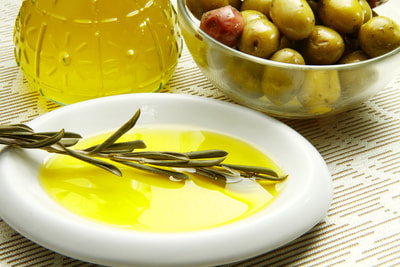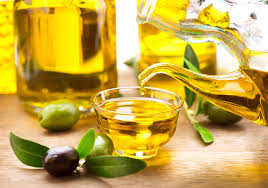Have you ever stood in front of the grocery store display of olive oil and wondered how there could be so many different bottles? Did you wish you knew if price was related to quality and if quality really mattered? Here are some answers to your questions.
Yes, quality does matter in olive oil. In some cases, olive oil may be mixed with other vegetables oils, reducing the health benefits that it provides. Be sure to read labels carefully and remember that money spent on a high-quality product is money well spent.
Yes, quality does matter in olive oil. In some cases, olive oil may be mixed with other vegetables oils, reducing the health benefits that it provides. Be sure to read labels carefully and remember that money spent on a high-quality product is money well spent.
Choose naturally solid oils such as organic pastured butter or ghee, red palm oil, or coconut oil for cooking and baking. Use olive oil for drizzling just before serving cooked foods or in cold foods, since high heat damages olive oil's nutrients.
Tips for Choosing High-quality Olive Oil
- Look for bottles labeled "Extra Virgin" (EVOO). These oils are the first pressed from the olive and contain the most nutrients.
- Choose oils labeled "cold-pressed" or "expeller-pressed." These oils have been produced without extra heating, which can damage the oil.
- Look for the seal of the International Olive Oil Council (IOC), which certifies the type of oil.
- Choose oils packaged in dark (green, black, etc.) glass bottles. Dark glass protects the oil from the damaging effects of light.
- Check the bottle for a harvesting date. Oil packaged appropriately should be fresh for up to two years from the date of bottling.
- If the oil does not become solid when refrigerated, it is not of high quality and purity. Placing the bottle in the refrigerator and observing it the next day can help to confirm your choice.
- Consider purchasing from an online vendor that ships oils close to their date of harvest and bottling, such as www.freshpressedoliveoil.com.


